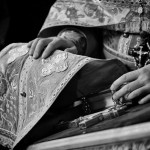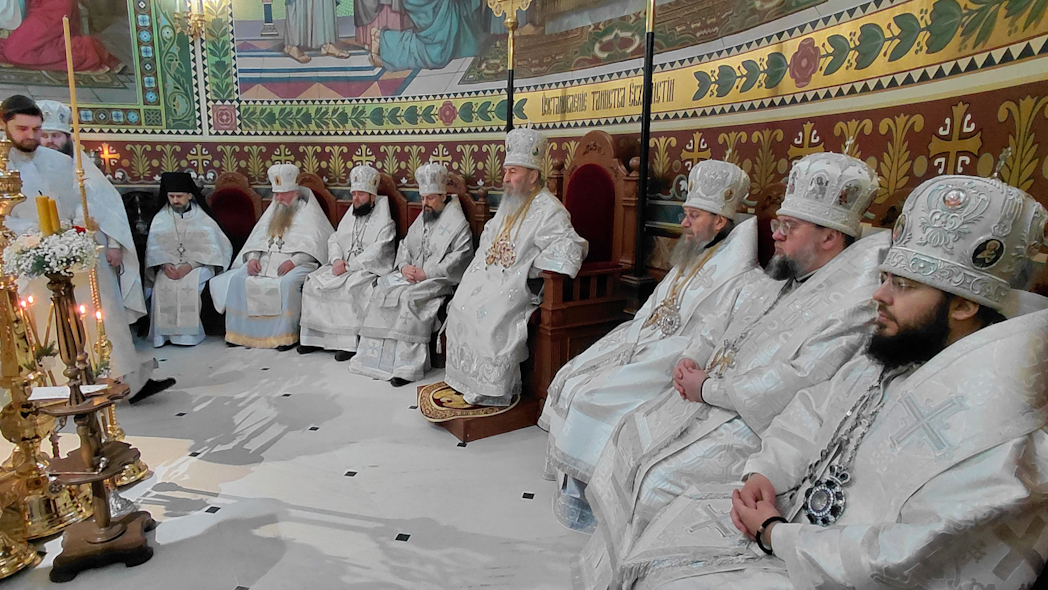Онлайн трансляция | 12 сентября
Название трансляции
- 12 сентября 2015 Название трансляции
- 12 сентября 2015 Название трансляции
- 12 сентября 2015 Название трансляции
- 12 сентября 2015 Название трансляции
- 12 сентября 2015 Название трансляции
- 12 сентября 2015 Название трансляции
- 12 сентября 2015 Название трансляции
- 12 сентября 2015 Название трансляции
articles

The Feat of the Holy Forty Days – The Feat of Repentance
 In the Holy Church, special periods are established when every Christian must take care of cleansing themselves through repentance. These are the four fasts. During these periods, the Church, through continuous services and the preaching of the clergy, calls Her children to abandon earthly cares and embark on the path of repentance and correction of life. The most favourable time for repentance is the path of Great Lent.
In the Holy Church, special periods are established when every Christian must take care of cleansing themselves through repentance. These are the four fasts. During these periods, the Church, through continuous services and the preaching of the clergy, calls Her children to abandon earthly cares and embark on the path of repentance and correction of life. The most favourable time for repentance is the path of Great Lent.
The path of repentance is difficult, but without it, a Christian cannot succeed in any virtue. If not infused with the spirit of repentance, numerous and even the highest feats become fruitless and harmful to the soul. Repentance is the only true path by which one can move from a carnal state to a spiritual one. For a traveller on earth, repentance has no limits; it accompanies them to the grave and opens the gates of paradise.
True repentance already brings amazing fruits here on earth. It instils peace and joy in the heart of a Christian, restores broken peace between people, resolves doubts, and heals the soul from enmity and resentment.
Repentance is inseparably linked to faith in Christ: it must precede faith in the Lord, and after baptism, repentance heals the sins into which a person falls due to weakness. Christ the Saviour, knowing that people would continue to fall away from Him through sin even after baptism established in His Church the sacrament of repentance, which is like a second baptism. On the difficult path of battling sin, every Christian, turning to repentance, receives not only the forgiveness of sins committed but also strength to fight against them. The very awareness that one will have to repent for sin, according to St. John Climacus, is like a “bridle” that restrains one from committing or repeating sin.
Repentance must be carried out not only with words, not with brief tears, not merely with outward participation in confession, but with inner contrition – sorrow for one’s sins, sincere confession before the spiritual father, and most importantly, a firm resolution to abandon sinful life and live according to the Gospel.
Saint Ignatius (Brianchaninov) says that God gave repentance to help a person in the struggle against sin, not for “indulgence” in sin, and the gift of God should not be used for evil. Following St. Isaac the Syrian, the bishop testifies that those who sin deliberately, relying on repentance, act “deceitfully” before God. Sudden death will strike them, and they will not be given time for repentance and the acquisition of virtues.
What should the repentance of a layperson be like?
In his letters, Bishop Ignatius repeatedly says that a layperson should not engage in a subtle and detailed analysis of their sins. This can lead to despair, confusion, and discouragement. God knows all human sins, so one must gather “all of them into one vessel of repentance and cast them into the abyss of God’s mercy.” “The sins committed in word, deed, and thought should be confessed to the spiritual father, but a layperson should not delve into the intricate analysis of sinful qualities… This is a trap set by the hunters of our souls. It is recognised by the confusion and despair it causes within us, though outwardly it may appear pious.”
If a Christian struggles with a sinful habit, Bishop Ignatius advises turning to confession more frequently, especially when carnal passions awaken, for repentance mortifies the harmful influence of bodily feelings.
Proper repentance must follow a sequence: first, one should confess grave sins, and then lighter ones. According to the teaching of the Orthodox Church, Bishop Ignatius believes that no sins surpass God’s mercy. No matter how great the sin or how often it is repeated, repentance can heal it.
“…There is no human sin that the Blood of our Lord and God, the Saviour Jesus Christ cannot wash away. The God-Man can cleanse it. The sins of the whole world are nothing compared to the Most Holy Blood of the Incarnate Lord, shed for us,” writes Bishop Ignatius.
In all mortal sins, a person can repent and receive forgiveness from the Lord Himself through the spiritual father in the sacrament of confession. Only suicide, where people deprive themselves of the opportunity to repent, cannot be healed through repentance.
The repentance of a person who remains in mortal sin can be recognised as genuine only when the person ceases to commit that sin. Bishop Ignatius knew that some people hate sin with all their soul but have become so accustomed to it that they are powerless in the struggle against it. Even for such people, the path of repentance is not closed.
Those who have fallen into an irresistible habit of sin should not despair but firmly remember that as long as a person is alive, the path of repentance remains open to them. Seeing sincere repentance, the Saviour can transform a heart that loves sin into one that loves God and make a sensual, carnal person into a spiritual, pure, and holy one.
Thus, repentance is the foundation of a Christian’s spiritual life and the key to salvation.
If you have found a spelling error, please, notify us by selecting that text and pressing Ctrl+Enter.
Photo Gallery:
Редакция сайта www.lavra.ua
To signed up and receive Lavra’s emails and important news once a week.
You will be able to unsubscribe from emails at any time.









Spelling error report
The following text will be sent to our editors: